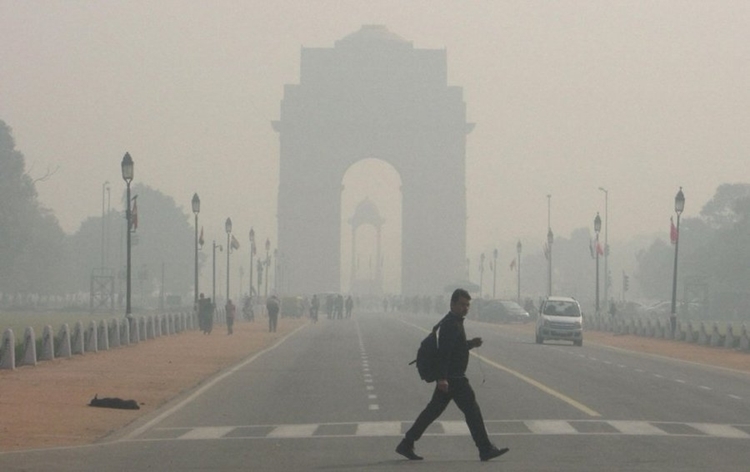The cold wave continues to tighten its grip over Delhi-NCR with the minimum temperature recorded at 7.3 degrees on Thursday morning, as per India Meteorological Department data. The maximum temperature is expected to be around 15 degrees in the national capital today and the fog conditions are likely to decrease in the next two days, the IMD said.
While IMD said that the cold wave is likely to persist for the next 2-3 days in Delhi and the National Capital Region. As per IMD data, fog conditions were observed over Uttar Pradesh, Chandigarh, Rajasthan, and Bihar and dense fog prevailed over Madhya Pradesh and Tripura while the Jammu division experienced moderate fog conditions.
The air quality in several parts of Delhi remained in the ‘very poor’ category on Thursday, as per Central Pollution Control Board (CPCB) data. According to the CPCB data, the Air Quality Index was recorded at 379 in RK Puram on Thursday morning, 312 in Lodhi Road, 377 ITO area and 387 in the IGI Airport area.
As per IMD, cold day to severe cold day conditions are likely to continue over some parts of Punjab, Haryana, Uttar Pradesh and Rajasthan during the next two days and decrease thereafter. Also, IMD said that dense to very dense fog is likely to continue over some parts of the plains of Northwest and East India during the next two days and gradually decrease thereafter.
A rise by 2-3 degrees in minimum temperatures is likely over many parts of Central and East India during the next 3 days and no significant change thereafter, the IMD said. The IMD also issued a health advisory to the public warning against lung-related health impacts due to dense fog and cold wave.
“Dense fog contains particulate matter and other pollutants and in case exposed it gets lodged in the lungs, clogging them and decreasing their functional capacity which increases episodes of wheezing, coughing and shortness of breath,” the IMD said.
Warning against eye irritation, IMD said that pollutants in the air if exposed may tend to irritate the membranes of the eye causing various infections leading to redness or swelling of the eye. (ANI)














